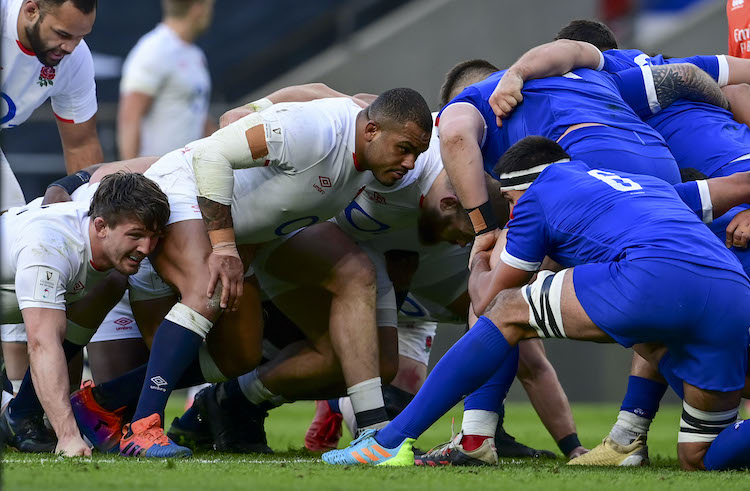Nick Isiekwe, the England forward, underwent open-heart surgery before participating in the Six Nations and playing a crucial role in Saracens’ Premiership victory last season.
At the age of 24, Isiekwe faced the possibility of retiring from his career.
However, he was fortunate to have his professional future salvaged by a personalized external aortic root support (Pears) operation conducted by Conal Austin, a skilled cardiothoracic surgeon at Guys and St Thomas’ Hospital in London.
Merely four months after the surgery, he made a remarkable comeback for Saracens and even represented England in the Six Nations, under the coaching of Steve Borthwick.
“The gratitude I have for this man is incredible,” says Isiekwe in an interview in the Times.
“We play sport and people like to watch but it is guys like Conal Austin who save people’s lives. They are the real heroes. The things these guys can do is mind-blowing.”
The Pears procedure, created 19 years ago, still awaits formal approval by the FDA in the United States of America, despite more than 800 individuals worldwide having undergone the treatment.
Isiekwe is believed to be the pioneering individual to resume sustained, elite-level contact sports following this operation.
“Orange card” – World Rugby confirm five laws changes for World Cup matches
In an exciting bid to boost the pace and dynamism of the game, the upcoming 2023 Rugby World Cup will introduce a set of law modifications that have already proven successful during the 2023 Super Rugby season.
The main goal of these changes is to optimize the speed and continuity of play. Key actions like goal kicks, set pieces, and rucks will now be subject to time restrictions, ensuring a faster and smoother flow to the game.
Moreover, a major alteration will be seen in the Television Match Official (TMO) process. A more streamlined approach will be implemented, limiting TMO intervention to only clear instances of foul play. This reduction in interruptions will maintain the game’s rhythm and keep the excitement going.
To maintain a sense of urgency, referees will enforce specific time limits for each action on the field. For instance, conversions will be allotted a maximum of 90 seconds, penalty kicks 60 seconds, scrums and lineouts 30 seconds, and rucks must see the ball being used within 5 seconds.
Get ready for a thrilling and fast-paced Rugby World Cup like never before! These innovations are set to take the rugby experience to a whole new level.
The key changes are summarised in bullet points below:
- The referee will put a stopwatch shot clock on kickers who will have 90 seconds to kick a conversion from the time a try is awarded, and 60 seconds for penalties, from the time the referee signals a shot at goal.
- Match officials will expect lineouts and scrums to be formed within 30 seconds of the respective marks being set, and the ball to be used within 5 seconds of a ruck being formed.
